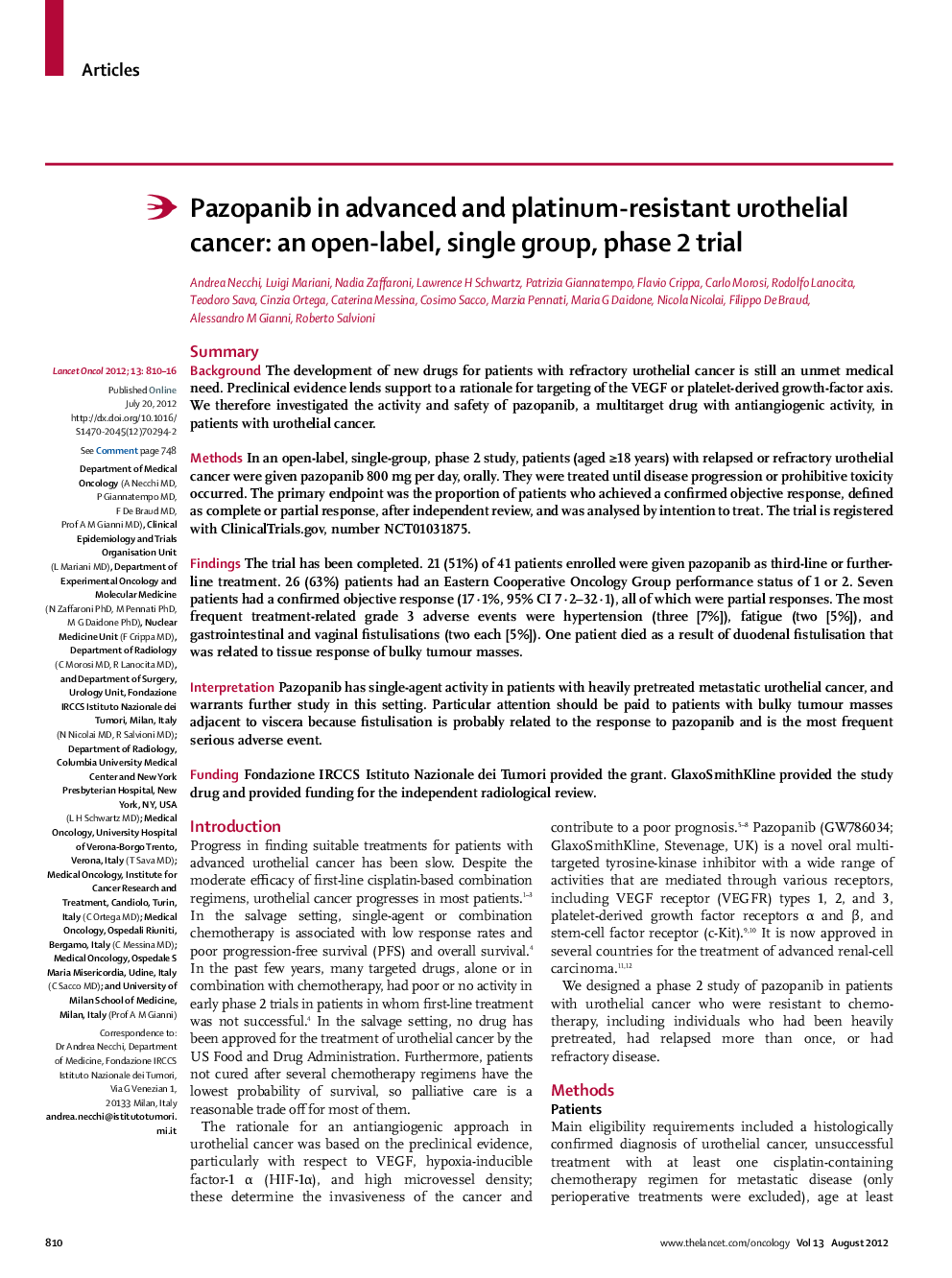| Article ID | Journal | Published Year | Pages | File Type |
|---|---|---|---|---|
| 3994815 | The Lancet Oncology | 2012 | 7 Pages |
SummaryBackgroundThe development of new drugs for patients with refractory urothelial cancer is still an unmet medical need. Preclinical evidence lends support to a rationale for targeting of the VEGF or platelet-derived growth-factor axis. We therefore investigated the activity and safety of pazopanib, a multitarget drug with antiangiogenic activity, in patients with urothelial cancer.MethodsIn an open-label, single-group, phase 2 study, patients (aged ≥18 years) with relapsed or refractory urothelial cancer were given pazopanib 800 mg per day, orally. They were treated until disease progression or prohibitive toxicity occurred. The primary endpoint was the proportion of patients who achieved a confirmed objective response, defined as complete or partial response, after independent review, and was analysed by intention to treat. The trial is registered with ClinicalTrials.gov, number NCT01031875.FindingsThe trial has been completed. 21 (51%) of 41 patients enrolled were given pazopanib as third-line or further-line treatment. 26 (63%) patients had an Eastern Cooperative Oncology Group performance status of 1 or 2. Seven patients had a confirmed objective response (17·1%, 95% CI 7·2–32·1), all of which were partial responses. The most frequent treatment-related grade 3 adverse events were hypertension (three [7%]), fatigue (two [5%]), and gastrointestinal and vaginal fistulisations (two each [5%]). One patient died as a result of duodenal fistulisation that was related to tissue response of bulky tumour masses.InterpretationPazopanib has single-agent activity in patients with heavily pretreated metastatic urothelial cancer, and warrants further study in this setting. Particular attention should be paid to patients with bulky tumour masses adjacent to viscera because fistulisation is probably related to the response to pazopanib and is the most frequent serious adverse event.FundingFondazione IRCCS Istituto Nazionale dei Tumori provided the grant. GlaxoSmithKline provided the study drug and provided funding for the independent radiological review.
